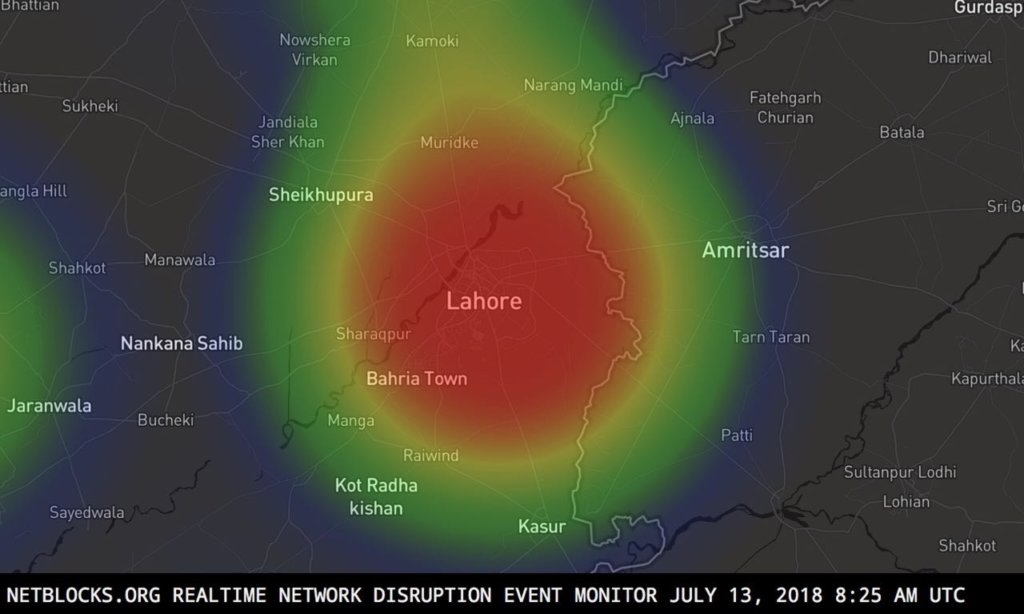
Digital Rights Foundation (DRF) and Bolo Bhi have partnered with Netblocks to run an internet observation mission during the upcoming General Elections 2018. The digital rights groups will be tracking shutdowns pertaining to mobile, internet and content.
Announcing the collaboration in the official blog post published by DRF, the groups emphasized that unreasonable attempts like internet and mobile shutdowns go against the constitution of Pakistan which has guaranteed freedom of speech and right to information under Article 19 and Article 19-A respectively.
With the suspension of mobile services in Lahore on July 13th, DRF and Bolo Bhi fear further internet and mobile service blocking as the country gears up for elections. They now call the caretaker government of Pakistan to allow citizens to access their democratic and civil rights by ensuring access to digital services and protecting freedom of speech.
Speaking to TechJuice. Director BoloBhi, Usama Khilji shares,
“There is no sufficient evidence that supports network outages to increase safety and security. In major cases, where access to information is vital at a given time, such network shutdowns create more insecurity and panic amongst citizens.”
With this collaboration with Netblocks, the signatories will track internet and telecommunication connectivity across Pakistan spanning the election period. NetBlocks Group is a non-partisan civil society movement that aims at ‘mapping internet freedom’ at the intersection of digital rights, cyber-security, and internet governance.
NetBlocks also developed a visual to measure the extent of recent service disruption in Lahore. The image below depicts the affected areas where internet and mobile service was suspended.
The Internet Shutdown Observatory is a software developed by NetBlocks that uses measurement, classification and attribution techniques to detect internet disruptions, online censorship, and cyber-attacks. This detection helps to expose unprecedented disruptions to improve internet governance. One of the components of the software has tested a run to track mobile service suspension, as indicated in red in the above visual.
During service disruption, if users access the link by NetBlocks, it pings their server and indicates if internet service is operational. Khilji explained the example of documenting the blocked access to Awami Workers Party (AWP). They propagated a NetBlocks link and the software mapped the area perimeter where the website was blocked. The visual tracking of the software helps build empirical evidence that can be used when pursuing complaints and discourse with public departments.
When asked if the digital rights group have pursued a dialogue with Election Commission of Pakistan (ECP) or Pakistan Telecommunications Authority (PTA), Khilji tells,
“Currently, censorship remains a big issue. When we reached out to ECP in the AWP matter, it declared that such matters are out of their domain and we should consult with PTA. We filed a couple of Right to Information applications, however, owing to a change in command, PTA is not as responsive anymore.”
The citizens of this country want the electoral process to be transparent. Shutting down access to mobile and internet services also disrupts the access to information for voters to make informed decisions. By tracking access to these digital services, this partnership will help give feedback to the state along with mapped evidence.
The post Mobile and internet shutdowns to be tracked in Elections 2018 by DRF and BoloBhi appeared first on TechJuice.

